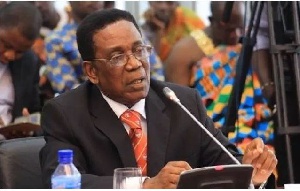 Prof. Kwesi Yankah, Minister of State in charge of Tertiary Education
Prof. Kwesi Yankah, Minister of State in charge of Tertiary Education
The controversial Public Universities’ Bill has been suspended at the Education Committee level in Parliament for further consultation.
The bill was met with stiff opposition from the Minority, Civil Society and the university community who maintained that some clauses in it were at variance with provisions of the 1992 Constitution.
To them, if passed, the law would create more problems than it sought to resolve.
Laid in parliament earlier this year, the bill seeks to harmonise the governance, administration and accountability structures of public universities.
But the University Teachers Association of Ghana (UTAG) said after reading same, it was at “a loss regarding the rationale for the enactment of the legislation.
“After a careful clause by clause analysis of the bill, the passage of it into law in its current form will create more problems for the running of the universities than they seek to resolve,” UTAG said in a statement.
Speaking in an interview with journalists in Parliament on Monday, Ranking Member on the Education Committee and MP for Akatsi North, Peter Nortsu Kotoe, said the bill had been suspended.
“When we went for the consideration, there were so many amendments and these amendments resulted in a deviation from the object of the bill; and once there was a deviation, you have to recommend it to be taken back to cabinet with the recommendations and if cabinet agrees that those recommendations should form part of the of the bill, a new one would have to be prepared and relayed in Parliament,” Mr Kotoe explained.
According to him, the concerns of the stakeholders had to do with the autonomy of the universities, the governance structure, policy directives that the minister would give and the universities would have to comply and restrictions on universities on some of the traditional courses they are supposed to run.
All these, he said, made the UTAG and other university professional groups feel their academic freedom was to be taken away from them.
The stakeholders, he said, would be an integral part of any future consideration of the bill.
“When a new one is brought, we would have to consult them again and see if their concerns have been carried along.”
Key among the concerns of the opponents of the bill relates to the proposed clause 13 which gives the President the power to appoint the chancellor of a public university contrary to article 195(3) of the Constitution.
“The power to appoint persons to hold or act in an office in a body of higher education, research or professional training, shall vest in the council or other governing body of that institution or body”, the Constitution states.
Should it be passed in its current form, the bill would give government the power to appoint the majority of members of the University Council, giving the President the power to dissolve the university council at will.